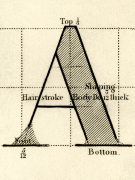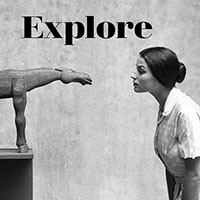
Archives at Yale, a powerful new software tool launched in early September, will allow students, faculty, and other researchers to search more precisely across and within more than 5,000 collections held by ten Yale libraries and museums. The tool is built on a widely used open-source web application—which means that Yale’s investment in developing Archives at Yale will also benefit other libraries and museums around the world.
“Yale’s collections are unusually large and diverse, with unique information management needs,” said Susan Gibbons, the Stephen F. Gates ’68 University Librarian and Deputy Provost for Collections and Scholarly Communication. “It required more than eighteen months of development work to adapt and enhance ArchivesSpace, the open-source application, for the complexity of Yale’s multiple repositories and collections. In the process, we’ve developed capabilities that many other ArchivesSpace institutions will be able to use but would not have had the resources to develop on their own.”
The Yale project team, led by IT Portfolio Manager Melissa Wisner, conducted extensive user testing to make the search process more intuitive and accessible. Collection finding aids—written descriptions of collection contents— were enhanced and standardized to address elements like inconsistent date formats and name variations that can trip up search tools and prevent relevant items from surfacing. Another important innovation is the ability to limit searches to a date range, thus screening out irrelevant results. Additionally, when material on a research topic is spread across multiple collections, Archives at Yale can often point users to folders within collections, and sometimes even items within a folder, rather than just to the collections. “Doing archival research can be a bit of a treasure hunt, when materials are buried in big collections with lengthy finding aids,” said Ève Bourbeau-Allard, processing archivist at the Beinecke Rare Book and Manuscript Library. “This saves a lot of time and makes the results less opaque, like lifting a veil.”
The project is a milestone in an ongoing university-wide initiative to unify the experience of working with primary source materials in repositories across campus. “In building extraordinary collections over the last three centuries, Yale has made a commitment to the creation, preservation, and dissemination of human knowledge,” Gibbons said. “Archives at Yale will make it easier for the campus community and the international research community to participate in that important, ongoing work.”
The sheer magnitude of Yale’s collections can be glimpsed at archives.yale.edu, where a dropdown menu shows 5,296 different collections searchable with the new tool. The collections are held by the Beinecke Rare Book and Manuscript Library, Manuscripts and Archives, the Yale Peabody Museum, the Yale Center for British Art, the Divinity School Library, the Gilmore Music Library, the Haas Arts Library, the Lewis Walpole Library, and the Medical Historical Library. The individual collections contain further multitudes of manuscripts, documents, photographs, and ephemera.
Archives at Yale will run side-by-side with the now outmoded Yale Finding Aid Database (YFAD) until the end of the semester while the project team continues to test, fine-tune, and survey users for feedback. However, users are encouraged to move from YFAD to Archives at Yale as soon as possible to access the enhanced search capabilities and to ensure that their initial experiences are incorporated into the ongoing development.
Even after the transition is completed, Archives at Yale will continue to evolve, with help from diligent users and staff. “The culmination of this project is a modern technical platform for archives and special collections that will not only improve discovery and use of Yale’s rich collections but will also bring forward additional service integrations and comprehensive collections management for our cultural heritage,” Wisner said.
Many staff from across the library and the participating repositories contributed to the development of Archives at Yale. The project leads were Marc Custer, Alison Clemens, Alicia Detelich, Emily DiLeo, Mike Morand, Eve Neiger, Christy Tomecek, Steve Wieda, and Melissa Wisner.